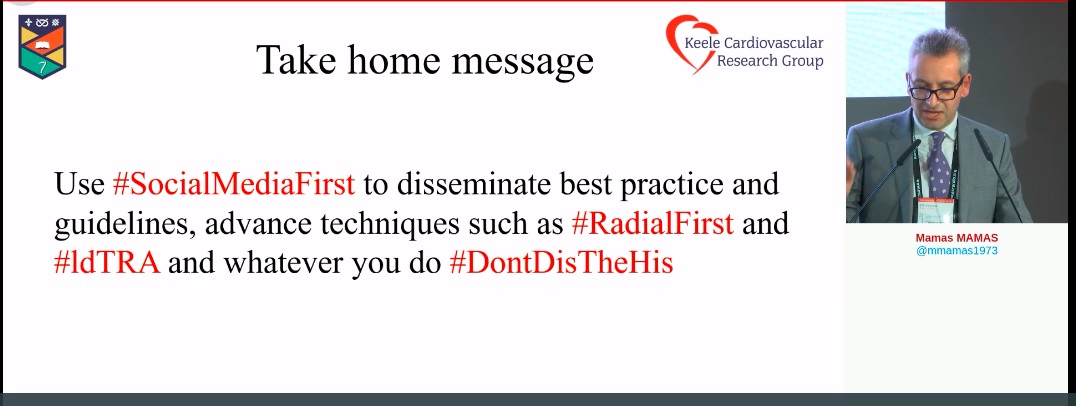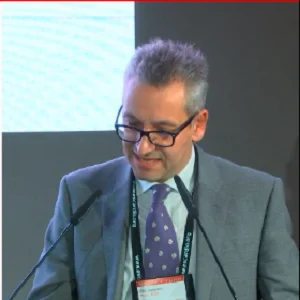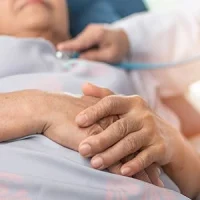In a very interesting session at the #ESCCongress in Paris on the use of #SoMe in cardiology, Prof. Mamas A. Mamas of the University of Keele talked about ways in which social media can and has changed clinical practice in cardiology.
Practice in medicine is led by randomised control trials. All these trials eventually inform clinical guidelines. But considering the fact that most of these guidelines are excessively long and the fact that there are numerous guidelines in a field like cardiology, there is always the problem of transferring this information and ensuring implementation. This is usually done through meetings that are conducted to moving and implementing guidelines in the community, such as the ESC Congress. But again, how many people actually attend these meetings. What about those who do not attend? How do they get updated on these guidelines?
This is where Social Media can help, says Prof. Mamas. #SoMe can help summarise guidelines from meetings in an easy-to-digest format. #SoMe can also help advance practice through cases, discussions, and polls. There are also platforms for promoting change in practice. CardioSmart is one such platform for promoting guidelines and better living.
Guidelines are a very small proportion of our practice. Cardiology is advanced through techniques and through indications and the sort of patients that undergo these procedures. Once again, #SoMe drives processes and patient care forward by providing more information about these techniques and promoting discussion.
On Twitter, cases are updated on an hourly basis, on a daily basis. PCR Online, for example, is a great resource for education and enabling clinicians to optimise their techniques by showcasing new and advanced techniques. There are many other similar online tools and platforms that help transfer knowledge in a quick and effective manner.
Overall, Prof. Mamas pointed out that Social Media has driven clinical practice in many different ways by:
• Disseminating guidelines in an easy to understand format
• Education through cases
• The introduction of techniques
• Crowdsourcing experience with new technology
• Delivering practice changes within minutes and not several years
However, like every other tool or platform, #SoMe should also be used appropriately. It is important to behave on social media, says Prof. Mamas, just like you behave in real life. People can often criticise individuals rather than studies. You don’t have to agree with every opinion on social media, but you should always discuss in a respectful manner.
You also have to look at who is posting the tweet and whether it is in line with guidelines/recommendations. #SoMe should be a tool to further your knowledge but should not be considered the only source of education.

Source: Prof. Mamas A. Mamas' Presentation at ESC Congress 2019
Image Credit: Prof. Mamas/ESC
Latest Articles
Cardiology, social media, #ESCcongress, #CardioTwitter, #SoMe
In a very interesting session on the use of #SoMe in cardiology, Prof. Mamas A. Mamas of the University of Keele talked about ways in which social media can and has changed clinical practice in cardiology.










